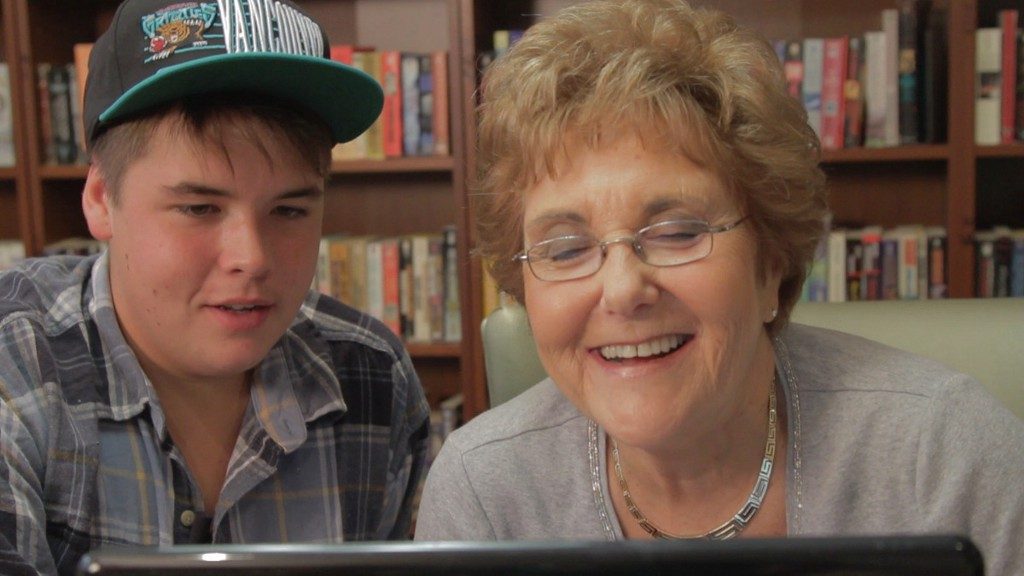In 2009, a documentary idea simply fell into my lap. My two younger sisters were in high
school when they decided to create a volunteer program called “Cyber-Seniors.” Inspired
by seeing our grandparents get online and witnessing all the ways in which it changed
their lives, they wanted to help other seniors do the same. I tagged along and
filmed some of their lessons. My goal was to help my sisters out by creating
some promotional material for the program.
From behind the camera I began to
see generation gaps narrow and friendships develop. I immediately knew this was
a story I wanted to tell, so with my mother as my producer, I set out to make
my first documentary film. We brought on a small crew: one production
assistant, one cinematographer and one audio recorder. We gained access to two
local retirement homes full of seniors who were intrigued by the online world
that they knew so little about. We put out an ad looking for teenagers
interested in mentoring the seniors and received many responses. Some of the
teens were keen to bulk up their college resumes, while some probably just liked
the idea of being in a movie.
In my naivety I thought directing a doc would be easier than directing a
narrative feature. I figured with no shot lists or scripts required, my only
task was to point, shoot, and wait for the magic to happen. The magic did indeed
happen! Both the seniors and students readily opened up to us in front of the
camera, and we witnessed a series of heartwarming transformations from both
parties. But as the footage began piling up, I realized the most difficult part
would be piecing together a coherent story.
My editing tactic was to start with the scenes that inspired me most. Coming
from a comedy background, my instinct was to go for the funny. I created 2–3
minute vignettes of humorous moments, accented with punch lines. The comedy
came naturally: These two groups couldn’t be anymore different in their
understanding of the tech world. But beyond the cute, comedic moments,
compelling and poignant stories began to emerge.
It’s not easy learning something new, especially not in your later
years. However, each character had his or her own reason for giving it a shot,
the most common being the desire to reconnect with family who weren’t often
around. Much has been said about the dangers of our rapidly developing tech culture and the ways it can isolate us from society. But through introducing
the Internet to a group of people who had never used it before, I was reminded
of all the wonderful things technology can bring to our lives, especially for
older people who can’t move around as freely as they once could.
Even the
teenagers involved quickly recognized the need for connection we all have, at
any age. They gained a newfound respect for their elders and really began to
enjoy their company. I became inspired by my own grandparent’s use of the
Internet, and the film features a very personal B-storyline that demonstrates
how the Internet allowed my family to support one another through hardships.
We are thrilled by the positive feedback the film has garnered so far,
especially through the endorsement of the AARP Foundation, who are underwriting
a theatrical tour for us. Making this film taught me a lot about later life,
family, and the desire we all have to connect. We hope the film will inspire
other young people to reach out to older citizens, whether it be their own
grandparents or other seniors in their community, and help spread the
Cyber-Seniors movement.
CYBER-SENIORS
opens today in NYC and is also currently playing in Los Angeles. For
additional screening dates and locations, please visit: http://cyberseniorsdocumentary.com/screenings/






